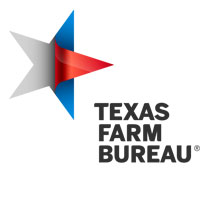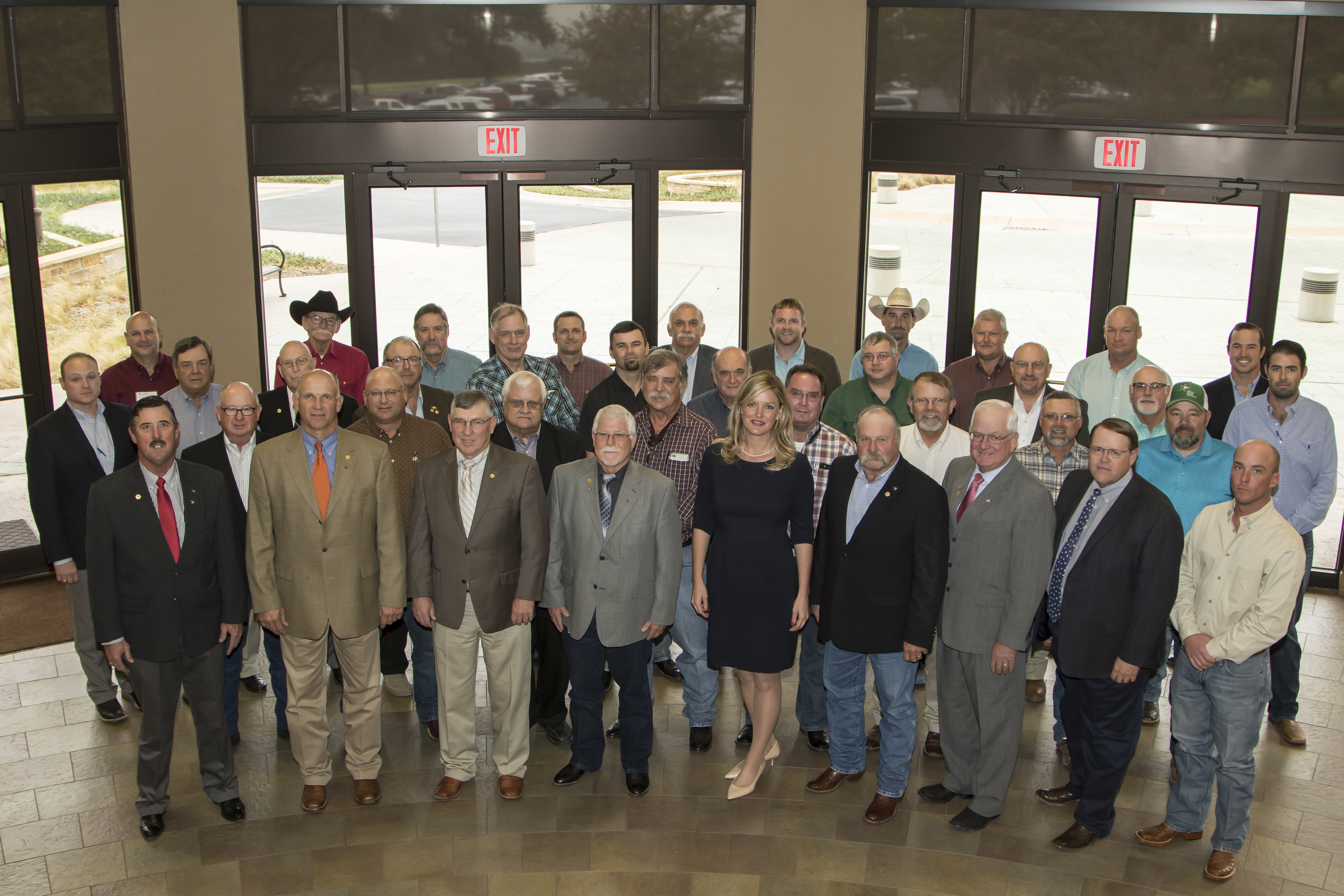TFB Resolutions Committee sifts through agricultural issues
(WACO, Texas)—Eminent domain, animal disease traceability and feral hog control took center stage as the Texas Farm Bureau (TFB) Resolutions Committee discussed proposed policy changes for the state’s largest farm and ranch organization Nov. 6-7.
The committee, made up of 38 TFB members representing all segments of agriculture, spent two days reviewing, deliberating and consolidating nearly 200 resolutions to both state and national policies proposed by county Farm Bureaus from across the state.
During the two-day meeting, committee members reaffirmed support for additional eminent domain reform.
“Texas is a growing state with a strong appetite for new development. That puts a target on private property,” TFB Vice President and Committee Chairman Michael White said. “Because of our state’s rapid growth, eminent domain reform is even more important to seek fairness for private property owners.”
Eminent domain reform was unsuccessful in the most recent legislative session, but it remains a priority for the organization.
The committee proposed support for a voluntary animal identification program that solves the need for animal disease traceability, as well as expanding export market opportunities where trading partners demand traceability.
“This resolution has a dual purpose,” White said. “The committee is in favor of a voluntary identification system to monitor outbreaks immediately, while also allowing our ranchers to have access to export markets where animal identification and traceability are required.”
The committee also supported the establishment of a Texas Bred program to promote the horse industry in the state.
Other issues on the state level included support for rural economic development programs and “share the road” signs for bicycles, motorcycles, horse drawn vehicles and slow moving agricultural equipment.
“Farm safety isn’t just for the farm,” White said. “Accidents involving farm equipment and cars happen every year. It seems that awareness is the toughest thing to grow when it comes to farm equipment traveling on our state’s roadways. These signs could help draw attention to the slow moving farm equipment and hopefully save lives.”
Other issues—like feral hogs and Dicamba-resistant genetics—included both state and national resolutions.
The committee proposed support of all legal methods to control feral hogs, including the use of approved chemical baits, at both the state and national level.
Dicamba-resistant genetics, the committee noted, are imperative to cotton production in the state. They proposed support of their use without hindrance from local, state or federal authorities.
Also on the national level, the committee proposed support for an exemption to the Digital Millennium Copyright Act for the repair of agricultural vehicles and listing cotton as a Title I Commodity in the 2018 Farm Bill.
Sustainable agriculture is a term many groups, both agricultural and non-agricultural, are attempting to define. The Resolutions Committee opposed non-government organizations establishing voluntary agricultural practices that may become federally mandated regulations.
“To be sustainable, agriculture must be profitable, or we won’t be able to continue farming and ranching,” White said. “The committee fears that outside groups not involved in agriculture want to establish practices that might become regulations that farmers must adopt to be able to grow crops and raise livestock.”
The policy recommendations will be considered during the organization’s 84th annual meeting Dec. 2-4 in Frisco.
Resolutions adopted at the TFB annual meeting become policies that guide the organization throughout the coming year. National resolutions, if passed by voting delegates at the TFB Annual Meeting, are sent to the American Farm Bureau Federation (AFBF) Annual Meeting for consideration.
Resolutions approved by AFBF delegates at the annual meeting in January will provide a roadmap for the national organization in 2018.
The 2017 Texas Farm Bureau Resolutions Committee convened Nov. 6-7 in Waco to review proposed policy changes from county Farm Bureaus (CFB) from across the state.
Row 1 (left to right): Russell Boening, TFB president; Michael White; TFB vice president and Resolutions Committee chairman; Robert Gordon, TFB secretary-treasurer; Mark Chamblee, TFB District 5 state director; Jessica Richmond, TFB District 7 state director; Larry Joiner, TFB District 9 state director; Bob Reed, TFB District 11 state director; Scott Frazier, TFB District 13 state director; and Chris Sparks, YF&R Committee chairman.
Row 2 (left to right): Pat McDowell, Wheeler CFB; Darren Stallwitz, Moore CFB; Kevin Buxkemper, Lubbock CFB; Walter King, Terry CFB; Brett Rosser, Swisher CFB; Mark Daniel, Baylor CFB; Todd Smith, Cottle-King CFB; and Joe Bob Whitaker, Young CFB.
Row 3 (left to right): George Stokes, Robertson CFB; Bennie Hromadka, Hamilton CFB; Dustin Coufal, Freestone CFB; Donald Krause, Brown CFB; Dale Duggan, Runnels CFB; Ross Copeland, Coke-Sterling CFB; Brandon Bell, Wood CFB; Paul Bayer, Lamar CFB; James Davis III, Ellis CFB; Scott Renfro, Grayson CFB; Brad Fenley, Denton CFB.
Row 4 (left to right): Jeff Croft, Anderson CFB; Chuck Conner, Angelina CFB; Jim Hall, LaSalle CFB; Cody Kneupper, Kendall CFB; Karl Collins, Walker CFB; Scott Savage, Matagorda CFB; Brian Nielsen, Caldwell CFB; Terry Johnson, Karnes CFB; Brian Adamek Victoria CFB; and Bryce Wilde, Willacy CFB.


